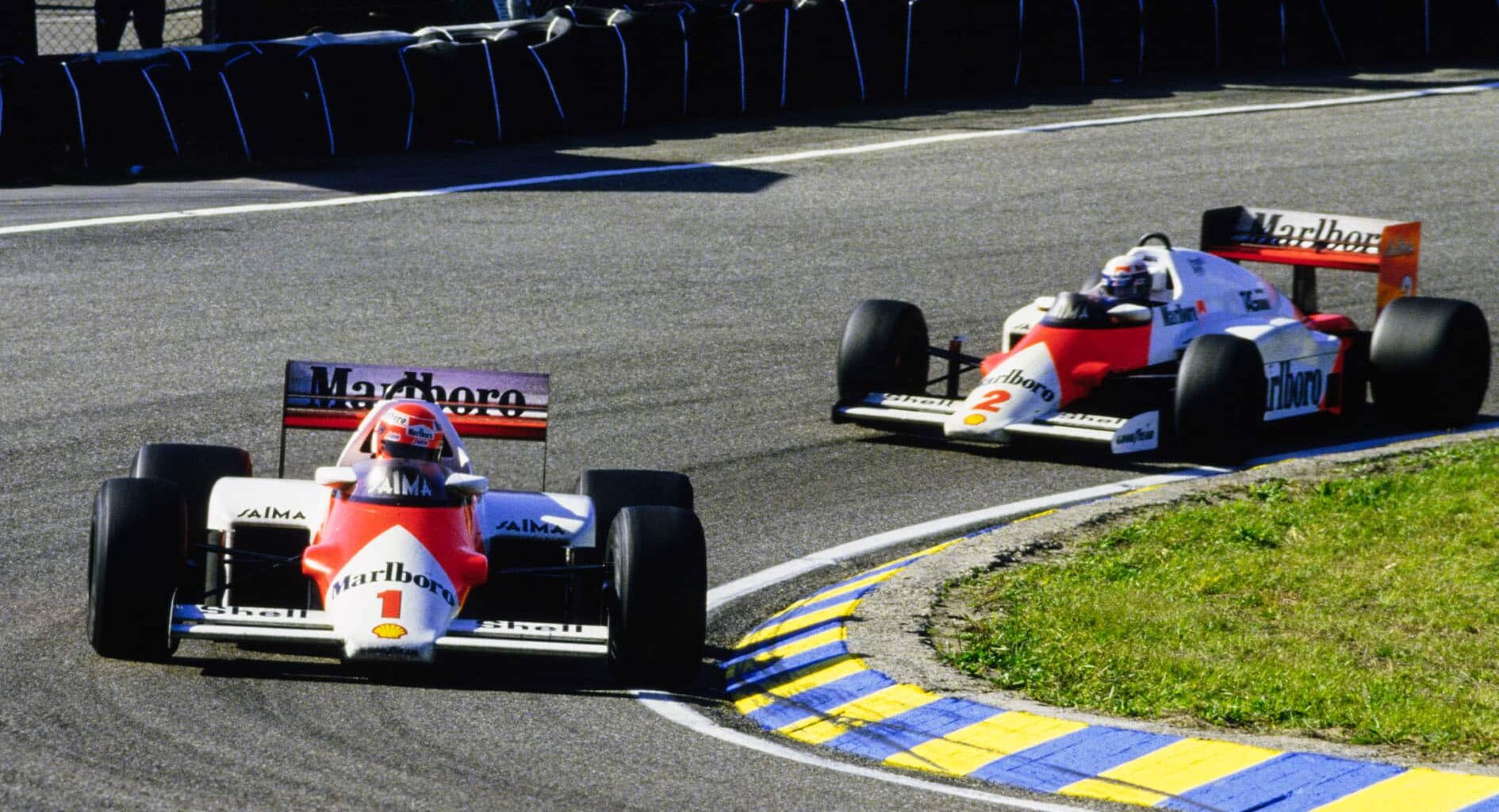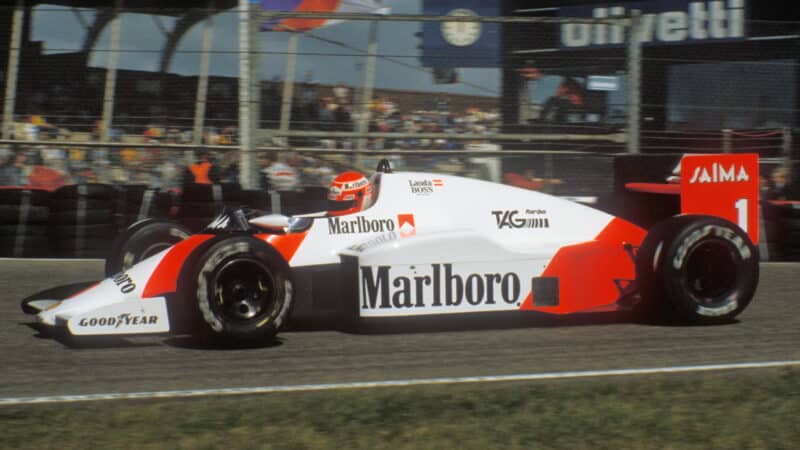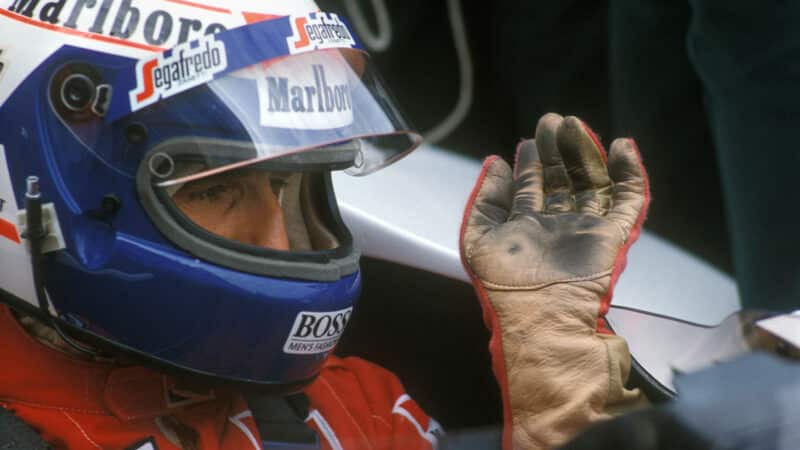Motor racing, like memory itself, has a way of filtering the past through the gauze of time, refining what was once raw into something burnished. And some Formula 1 grands prix, those rare few, emerge from the fog of history not merely as races won and lost, but as testaments etched in myth, measured in moments. One such race occurred 40 years ago yesterday: the 1985 Dutch Grand Prix, held at the then-soon-to-be-defunct Zandvoort, a circuit as rugged and as untamed as the coastal dunes on which it was carved.
It was August 25, 1985 – a sunny Sunday cooled by a crisp sea breeze – and the day would prove momentous for reasons far beyond the mere statistical. For the keen-eyed spectator perched on the grey terraces, huddled against the North Sea wind, it was not just a race; no, it was a requiem, but also a grand prix for the ages.
As the F1 circus prepares for the 2025 Dutch Grand Prix, which will be run this coming weekend on a Zandvoort that is but a pale shadow of its former self – oddly banked curves linked by fiddly sections that bring to mind the Scalextric sets of my youth – it is both appropriate and in my view enjoyable to look back at that final F1 race on the inimitable original. The 1985 Dutch Grand Prix was the last to be held at pukka Zandvoort, and it gave us a race worthy of that swansong status.
Lauda was in his final year of F1 in 1985
Grand Prix Photo
The Zandvoort 1985 field was stacked with true giants – men who would become legends of our sport, immortals even. And by some alchemy of fate, three of the most formidable of them rubbed shoulders on the podium that day, the second and last time that they would do so (Estoril 1984 had been the first). Niki Lauda, closer to 40 than 30 and a three-time F1 world champion already, won, for what would be the 25th and final time; Lauda’s McLaren team-mate, Alain Prost, 30, yet to win the first of his eventual four F1 world championships, was second; and third, in a beautiful black and gold Lotus, was a frighteningly ambitious and beguilingly impetuous young Brazilian, Ayrton Senna, 25, already electrifying the sport with a hypnotic blend of aggression and artistry.
Think of that podium. Let the thought linger. Lauda, Prost, and Senna. It reads like a who’s-who of racing legend, a motor sport pantheon compressed into a single photograph.
But the day was Lauda’s.
It was his last F1 grand prix win, as I say, but what a win it was – crafted with that blend of unpretentious pragmatism and gladiatorial grit that defined his F1 magnum opus. He had not led from the pole, nor had he even qualified particularly well, as was often the case with Lauda 2.0 (i.e. the four seasons he raced for McLaren, from 1982 to 1985, once he had returned from the sabbatical that he had abruptly triggered immediately after climbing out of his Brabham after FP1 in Montreal in 1979). In fact Lauda started the 1985 Dutch Grand Prix from P10, his McLaren compromised in qualifying by various technical gremlins, the most grievous of which was a persistent misfire. Yet, as ever, on race day he bided his time, he plotted his moves diligently and patiently, and, when opportunity presented itself, he seized it. By 1985 that was the way he always went racing.
1985 saw Prost secure his first F1 title
Grand Prix Photo
Yet what transpired over the final 10 laps was a flat-out duel characterised by consummate in-cockpit virtuosity. Lauda and Prost, team-mates and rivals, hurled their McLarens on a jitterbugging dance across the winding asphalt, swapping best sector times, drafting on the straights, and dicing with millimetric margins. But the old lion had one last roar in him, and he made it count.
The gap at the flag? Less than a quarter of a second. It was Lauda by a nose, Prost in his wake. No wheel-banging theatrics, no off-track lunges, just pure, high-octane, and above all intellectual grand prix motor racing… of the kind that we so rarely see in F1 today, more’s the pity.
After the flag, Lauda sat back in his cockpit, exhaled deeply, and allowed himself the faintest of smiles. “Not bad for an old man,” he said to the McLaren boss Ron Dennis later. Unembellished understatement, of course, had always been one of Niki’s many hallmarks.


